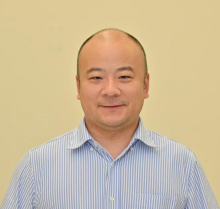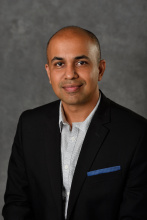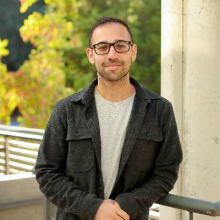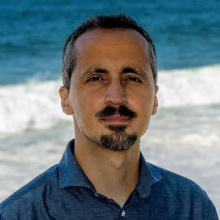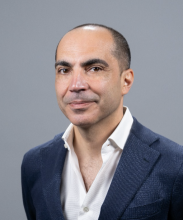CPS Events
Cyber-Physical Systems in Agriculture: Integrating Soft Robotics and Human-in-the-Loop Mechanisms
Abstract
Tree fruit growers worldwide are grappling with labor shortages in crucial operations such as harvesting and pruning. The development of robotic solutions for these labor-intensive tasks has generated significant interest. However, existing efforts have proven to be excessively expensive, slow, or necessitate orchard reconfiguration for functionality.
In this presentation, I introduce three alternative approaches to agriculture robot development: 1) Utilizing a cyber-physical system that facilitates human participation and machine learning for collaborative robotic apple harvesting. 2) Introducing a novel soft-growing multi-robot platform to reduce costs and enhance overall responsiveness. 3) Learning human-robot collaboration behaviors to optimize efficiency.
Leveraging human-robot interaction to address existing individual shortcomings of humans and robots will enable mutual learning of behaviors to enhance overall efficiency.
Speaker Bio
Dr. Ming Luo is currently a Flaherty Assistant Professor in the School of Mechanical and Materials Engineering at Washington State University. He is the director of the Mechanically-Intelligent Autonomous Robotics (MIAR) Laboratory. From 2018 to 2020, he was a postdoctoral scholar in the Department of Mechanical Engineering at Stanford University. He received his Ph.D. in Robotics Engineering from Worcester Polytechnic Institute in 2017. His academic interests include agricultural robotics, soft robotics, snake robots, origami robots, and haptics. His research has been funded by the NSF, USDA, NIFA, and the Washington Tree Fruit Research Commission. His work has also been featured in The Wall Street Journal, IEEE Xplore, Reuters, and The Verge.
A Competitive Analysis Approach to Perimeter Guarding
Abstract
Perimeter guarding studies how mobile defenders intercept intruders before they breach a boundary. Inspired by protecting bases from drones or missiles and shielding crops from predator swarms, the talk reviews recent work on models, limits, and motion algorithms. Using competitive analysis, performance is the competitive ratio: intruders caught by an online strategy versus an omniscient offline one. This input‑agnostic metric avoids restrictive game‑theoretic assumptions. Results begin with a single defender on a line, deriving tight bounds and algorithms with provable guarantees. Extensions cover planar settings and cooperation among multiple homogeneous or heterogeneous vehicles. Numerical experiments validate the theory. The framework offers practical guidance for designing real‑time perimeter defense across diverse threat scenarios. Open questions on sensing delays, stochastic arrivals, and resource constraints will be highlighted.
Bio
Shaunak D. Bopardikar is an Assistant Professor of ECE at Michigan State University and part of MSU’s CANVAS Center for Connected Autonomous Networked Vehicles. His research spans autonomous motion planning and control, cyber‑physical security, and scalable optimization. He has B.Tech./M.Tech. degrees in Mechanical Engineering from IIT Bombay in 2004 and a Ph.D. in Mechanical Engineering from UC Santa Barbara in 2010. His experience includes engineering at GE India Technology Center (2004–05) and a post‑doctoral appointment at UCSB (2010–11), where he developed randomized algorithms for matrix games. From 2011 to 2018, he served as a Staff Research Scientist in the Controls group at United Technologies Research Center, East Hartford, and Berkeley. Bopardikar is a senior IEEE member, author of more than 85 refereed publications, and co‑inventor on two U.S. patents. Honors include a 2021 AFRL Summer Faculty Fellowship, a 2023 NSF CAREER Award, IEEE TCSP Best Student Paper (advisor), and MSU’s 2024 Withrow Excellence in Teaching Award.
Low-Power Language Models
Abstract
This talk explores how to scale neuromorphic computing up to large-scale applications. While training large language models costs in excess of millions of dollars, the human brain does remarkably well on a power budget of 20 watts. We explore the space of neuromorphic algorithms, from spiking neural networks to lightweight language models, and learn how to span the stacks of computation to develop models that are competitive with those developed by companies that are far richer than academic labs.
Bio
Jason is an Assistant Prof with the ECE Department at UC Santa Cruz. His research is focused on brain-inspired computing. He's won a bunch of awards, failed a bunch of other stuff, and pretends like he knows things on the advisory boards of a bunch of companies.
Scalable Marine Robotics: Advancements in Perception, Navigation, and Control for Ocean Exploration
Abstract
The ocean is vital to all living beings but still needs to be explored, leaving many questions unanswered. Fortunately, underwater robotics has greatly improved ocean exploration by accurately mapping the seafloor in high resolution and tracking animals in midwater. However, these platforms are often too expensive to build and operate, limiting ocean exploration and discovery. To address this issue, we need to lower the barriers to entry, particularly for scientific research requiring high-resolution measurements on a large scale. In this talk, I will share some of the collaborative research work that our team, the CoMPAS lab at MBARI, has been involved in addressing precision control, robust navigation, and machine perception based on novel robotics learning techniques. These are just a few examples of how marine robotics research can help close the ocean exploration gap.
Bio
Giancarlo Troni is a Principal Engineer at the Monterey Bay Aquarium Research Institute (MBARI), where he leads robotics research in the CoMPAS Lab, focusing on the perception, estimation, and control of underwater robotics systems. He has a Ph.D. from Johns Hopkins University and has previously served as an Associate Professor with the Department of Mechanical Engineering, Pontificia Universidad Católica de Chile (PUC), Santiago, Chile. Currently, Giancarlo is dedicated to developing better tools and methods for small, low-cost autonomous machines that can scale ocean exploration.
Automatic Control in the Era of Artificial Intelligence
Abstract
In an era when Artificial Intelligence is seen as a universal solution, this presentation critically examines its role in automatic control, focusing on optimal control techniques. It traces the evolution of optimal control from traditional, model-based approaches to modern, data-driven methods powered by AI. The talk highlights how theoretical foundations have been linked with computational capabilities, a relationship that has evolved over time. It discusses scenarios where AI-driven approaches can outperform classical methods and examines cases where the AI hype overshadows practical benefits. The presentation further explores applications in self-driving cars, advanced robotics, and energy-efficient systems. Looking forward, it identifies future directions including the design of learning control architectures that integrate predictive capabilities at every level, enabling systems to autonomously refine performance through learning and interaction with their environment.
Bio
Francesco Borrelli received his ‘Laurea' degree from the University of Naples Federico II, Italy, and his PhD from the Automatic Control Laboratory at ETH Zurich in 2002. He is currently a Professor at the Dept. of Mechanical Engr. at the University of California, Berkeley, USA, where he conducts research in the field of predictive control. Prof. Borrelli has authored over 200 publications in the field of predictive control and is the author of the book Predictive Control. He has received several awards for his contributions to the predictive control field, including the 2009 NSF CAREER Award and the 2012 IEEE Control System Technology Award, and was elected IEEE Fellow in 2016. In 2017, he was awarded the Industrial Achievement Award by the International Federation of Automatic Control (IFAC) Council. Prof. Borrelli has been a consultant to major corporations since 2004 and pioneers predictive control in self-driving vehicles, solar plants, and energy-efficient buildings. He founded BrightBox, co-directed Hyundai’s Berkeley center, and launched WideSense.

